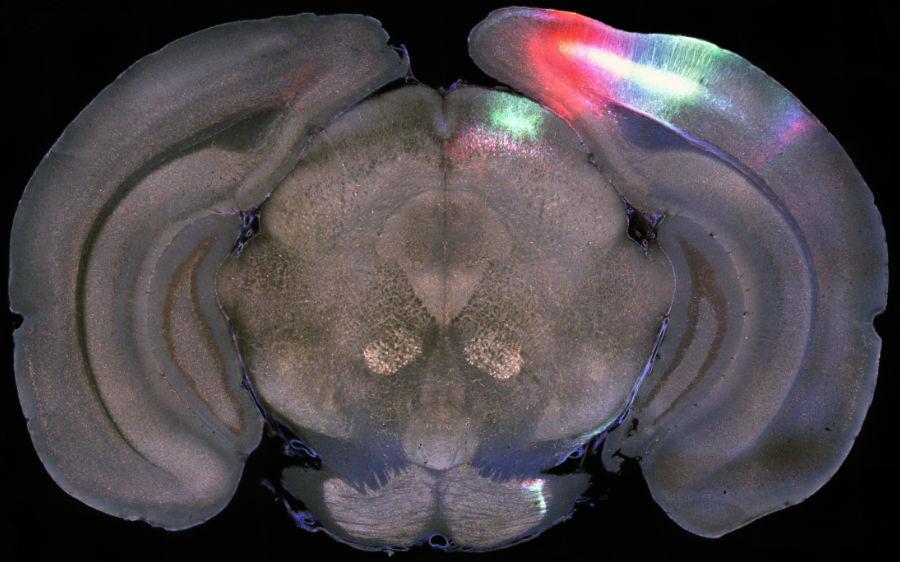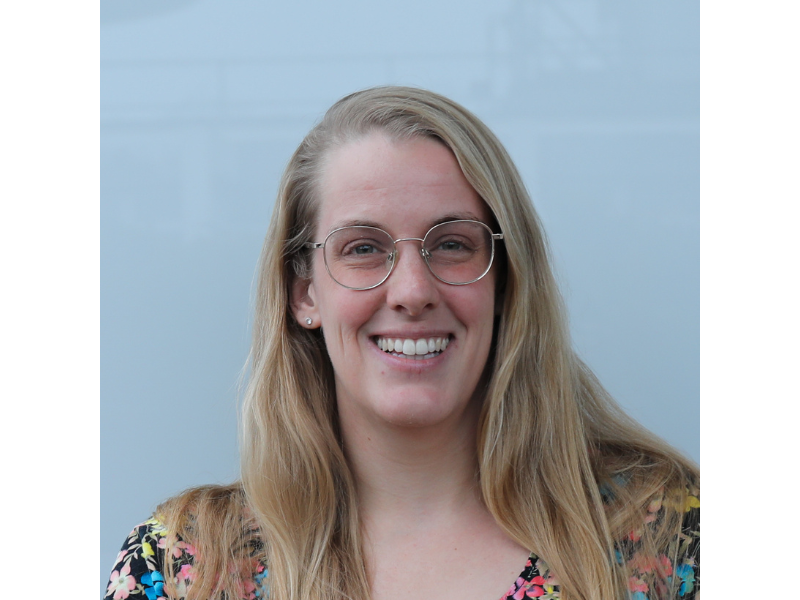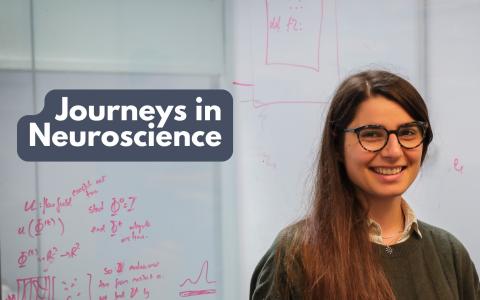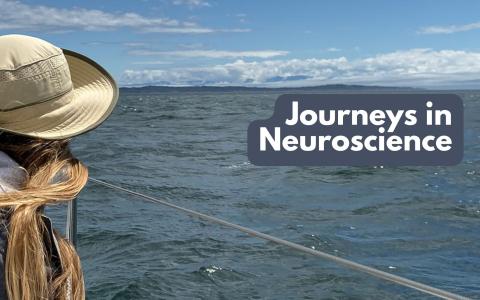
Neuroscience careers journeys – Microscopy Specialist
Isabell Whiteley is a microscopy specialist. She focuses on two-photon scanning microscopy - a fluorescence imaging technique that provides high-resolution, three-dimensional images of living tissues. The long wavelengths used penetrate deep into tissues, making it ideal for observing neurons in the brain and real-time imaging of cellular activities.
We spoke to Isabell about her role, her career journey, and she shares valuable advice for anyone considering working in neuroscience.
Tell us about your day-to-day
I'm the in-vivo imaging specialist here, which means I work in the core facility. I'm not directly doing neuroscience research, but I'm in charge of all the two-photon microscopes. If something goes wrong on the microscope, I'm here to fix it. If suddenly someone can't see their image, it's my job to figure out why. As well as helping when things go wrong I’m here to keep things at the cutting edge, and make things that will be used in the future too.
At the moment I am working with a couple of groups to help design and build new imaging setups. I am also working to implement baseline monitoring of the in vivo setups that we have in the building to ensure that they are providing the best possible images to the users.
What is the best part about your job?
Being at the cutting edge of technology.
Tell us about your career
I really didn't know what I wanted to study at university. My mum said just have a think about what you're interested in. I thought, I don't understand how the brain works, and I want to. The brain is so fascinating to me. I googled it, and found out there was a thing called neuroscience, and that the university that I wanted to go to offered a course in it.
I studied neuroscience as a first degree. I then did a PhD in building optical systems for neuroscience research. PhDs never go to plan though, and I didn’t get to do as much neuroscience as I wanted! Instead, I spent four years learning to be an optical engineer and building microscopes and optical systems that could be used in neuroscience research. So it’s really great to now be in a role that brings together neuroscience and optics.
I think of my job as bridging the gap between the two fields. I can understand the neuroscience enough to discuss it, to understand what the scientists want, and know why they are doing certain things. But then I also understand the physics and the optics side. I don't have to be the most knowledgeable neuroscientist. I don't have to be the absolute most knowledgeable engineer, but I can be in between to help people out.

What’s the best thing about working in neuroscience?
It’s just really exciting. I always say that there's three great unknowns left in the world. We don't understand outer space. We don't understand the deep ocean. And we don't understand the brain. And I think it's really cool to be working to try and understand it.
It's amazing to be at the stage where we're still making discoveries. Some of the things I was taught about at university were unknown, I was told we don’t really know how that works – but now we do. Take Alzheimer’s, for example. I was told there are two theories about the causes of it. And now, there is a leading theory. Stuff that I was taught not even 10 years ago has been updated based on what's being discovered. That's really cool.
Some fields are so well established and so much is known. That means that your discoveries, while they are important, feel small. But neuroscience is so unknown - we don't understand how the brain works - so it’s always going to be new and exciting.
What are the challenges?
I think the challenge is that the answer is not there. You don't know if something is going to work or not.
Even working in optics – we know that the light should do because of its physical properties, but it doesn’t always work. You have to take steps to figure out what’s wrong. Add biology to that and you don’t know if something isn’t working because your hypothesis is incorrect, and that's actually not how things work, or if it’s because your sample is not behaving today.
What advice would you give to those who are considering a career in science?
Give yourself time to explore. If you find yourself questioning how things are working, then science is really a good direction to go in. Science is about discoveries. It's almost like you're on an adventure.
You don't need to specialise from the start. You can you can jump into things later down the line and you can study things more broadly at the beginning so you are not narrowed down. Something that you don't realise is science in school is very different to science in real life. I didn't particularly enjoy science in school necessarily, but I had one teacher who introduced that aspect of wonder to us, and that’s when I realised that science is actually about exploring things. It's not learning what's been learned already. It is pushing that further.
If you’re interested in doing research, it's much worth reaching out to labs and trying to get experience. A lot of universities have ways to do this. It’s a good way to get hands on, and see if it’s what you want to do.



